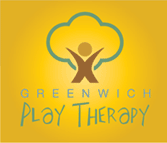Frequently Asked Questions
Is Medication a Substitute for Therapy?
Where Can I Get More Information on Play Therapy?
What is Parent Coaching?
If your child is struggling with emotional difficulties or behavior problems, or if he or she has gone through a difficult or traumatic situation, as a parent you may be feeling:
- worried or concerned about your child
- powerless or helpless because what you are doing may not be working and you don't know what to do to change things
- angry and frustrated with your child's behaviors
- confused and uncertain as to what is the best way to parent your child
- guilty or ashamed that somehow you may have failed as a parent
- discouraged and inadequate because your child is experiencing problems
Parent coaching is a way for you to reduce your stress levels and to increase your sense of confidence when interacting with your child.
How Can Parent Coaching Help?
- You will be supported in identifying and expressing your feelings related to your child's difficulties so that these feelings will not interfere with your parenting
- You will be supported in exploring various ways of interacting with your child that will improve the relationship between you and your child
- You can learn new parenting skills and behavior management strategies
- You will be updated on your child's progress if he or she is involved in play therapy; you will be provided with the general themes your child is expressing in play therapy and ideas to work adaptively with him/her at home; additionally, you will have an opportunity to provide me with information about significant changes in your child's behavior as well as to update me on important events that have occurred between play sessions
- You will be supported in dealing with other issues causing stress in your life that may be impacting your ability to help your child
How Long Will Therapy Last?
It is almost impossible to predict exactly how long therapy will last at the outset of treatment. My goal, however, is to provide relief for your child’s symptoms and improvement in your child’s behavior and functioning as quickly as possible. The usual course of therapy begins with weekly sessions to help establish rapport and build a solid therapeutic alliance. I believe that working together with a child’s parent/legal guardian is a vital part of the therapy process. Given this, I like to connect with parents/legal guardians about once a month to update you on your child’s progress and identify if there are any changes that need to be made to the treatment plan. As the work progresses over time and improvement is seen, it is not uncommon to progress to a lesser frequency of sessions and then ultimately to end the therapy all together.
Ending therapy is a natural and integral part of treatment. I will inform you when I feel the therapy is nearing an end and ask that you share any intentions you have of ending your child’s therapy with me. A lot of work will have gone into your child’s treatment. As such, thoughtful attention to the termination process is always more beneficial than abrupt endings to treatment in order to preserve the successes and gains your child will have made. Please know that once therapy has ended, you are always welcome to return for “check-in” sessions or to re-establish therapy at a later date if needed.
Is Therapy Confidential?
In general, the law protects the confidentiality of all communications between a client and psychotherapist. No information is disclosed without prior written permission from the client or his/her parent/legal guardian. There are some exceptions required by law to this rule. Exceptions include:- Suspected child abuse or dependant adult or elder abuse. The therapist is required to report this to the appropriate authorities immediately.
- If a client is threatening serious bodily harm to another person. The therapist is required to notify the police.
- If a client intends to harm himself or herself. The therapist will make every effort to work with the individual to ensure their safety. However, in such circumstances, additional measures, including notifying a parent/legal guardian need to be taken.
For further information regarding HIPAA Privacy Practices please consult my Forms Page.
Is My Insurance Accepted?
I am a participating provider with CT HUSKY services. I am an out-of-network provider for all other insurance plans. At the beginning of therapy, I gather your insurance information and contact your insurance carrier to determine your benefits. I submit a monthly claim to your insurance carrier for you.
If you wish to check yourself and determine if you have mental health coverage, the first thing you should do is contact your insurance carrier. Check your coverage carefully and find the answers to the following questions:
- What are my mental health benefits?
- What is the coverage amount per therapy session?
- How many therapy sessions does my plan cover?
- How much does my insurance pay for an out-of-network provider?
- Is approval required from my primary care physician?
- How do I go about submitting claims for therapy sessions?
Is Medication a Substitute for Therapy?
In some cases a combination of medication and therapy is the right course of action. Working with your medical doctor and/or a psychiatrist you can determine what's best for your child. It is well established that the long-term solution to behavioral and emotional problems, and the pain they cause, cannot be solved solely by medication. Instead of just treating the symptom, therapy addresses the cause of your child and/or family’s distress and the behavior patterns that curb progress. You can best achieve sustainable growth for your child and family, and a greater sense of well-being, with an integrative approach to wellness.
Where Can I Get More Information on Play Therapy?

